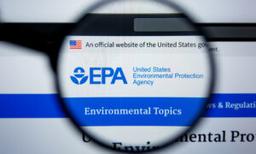Water Fluoridation’s Purported Cancer Connection: Trials Yielded Mixed Results
Decades of legal wrangling and scientific debate have shrouded the practice of water fluoridation in controversy.
Decades of legal wrangling and scientific debate have shrouded the practice of water fluoridation in controversy.
Over 40 years ago, veteran judges in three states made historic rulings against water fluoridation, finding it contributed to cancer and other diseases. Despite the landmark verdicts, appellate courts swiftly intervened, overturning the decisions and allowing fluoridation to continue, raising critical concerns about unresolved potential risks.
Historic Judicial Findings
The trials unfolded, beginning in Pennsylvania in 1978, then Illinois in 1980, and ending in Texas in 1982.
The lawsuits aimed to secure judicial recognition of the adverse repercussions stemming from water fluoridation. Among the alleged effects were concerns such as cancer proliferation, genetic harm, intolerant reactions, chronic toxicity, and perceived violations of constitutional rights.
Despite winning each case at trial, the final result was inevitable, Mr. Graham told The Epoch Times.
“Looking back on it now, I can see that the reason why we couldn’t go any further was because we were saying something that was politically impossible,” he said. “We were saying and proved that fluoridation causes cancer.”
Pennsylvania 1978: Aitkenhead v. Borough of West View
In 1978, plaintiffs filed a lawsuit seeking to block the planned fluoridation of the water supply in West View, Pennsylvania, arguing it posed a public health risk.
Dean Burk, who retired in 1974 as the head of the cytochemistry section of the National Cancer Institute and whose career there spanned 35 years, presented the scientific work.
His study compared cancer rates over 30 years in 10 of the largest fluoridated cities versus 10 of the largest unfluoridated cities.
Extrapolating to 130 million Americans drinking fluoridated water means that over 40,000 excess cancer deaths per year can be attributed to fluoridation, the 1999 law review article noted.
Burk’s findings were later challenged, which muddied the waters over fluoride’s link to cancer. However, during the trial, even a key expert for the defense was hesitant about water fluoridation.
That witness, Daniel Taves, declined to recommend fluoridation based on the presented data, noting he needed more information.
Illinois 1980: Illinois Pure Water Committee, Inc. v. Director of Public Health
The case was tried from April to June 1980 before Judge Ronald Niemann.
The defense brought in a state epidemiologist who argued that the work of the plaintiffs’ expert, Burk, linking fluoridation and cancer, was invalid.
The epidemiologist claimed adjustments for demographic factors, which would eliminate the cancer association, needed to be added but provided no figures to support his projections, according to the 1999 article in the Journal of Land Use and Environmental Law.
After the three-month trial, Judge Niemann ruled the mandatory fluoridation law exposed the public to uncertain health risks, was unreasonable, and violated due process.
“This record is barren of any credible and reputable scientific epidemiological studies and/or analysis of statistical data which would support the Illinois Legislature’s determination that fluoridation of the water supplies is both a safe and effective means of promoting public health,” he said at the time.
Judge Niemann entered a permanent injunction against fluoridation in Illinois in February 1982.
However, upon appeal, the Illinois Supreme Court reversed his judgment by citing broad interpretations of police power—the state government’s authority to regulate for public welfare, including safety and health.
Unlike the prior case in Pennsylvania, where the appellate court upheld the findings, here, the higher court disagreed.
Judge Niemann found enough initial evidence suggesting a fluoridation risk, even if uncertain, according to the 1999 article. But the Illinois Supreme Court said he only showed the question of the safety of fluoridation was “debatable,” not an unreasonable government action. Thus, the court overturned the injunction.
Texas 1982: Safe Water Foundation of Texas v. City of Houston
The final lawsuit Mr. Graham litigated to remove fluoride from a state’s water supply was brought to trial in January 1982 before Judge Anthony Farris in Texas.
The lawsuit sought to declare fluoridation ordinances in Houston unconstitutional and prohibit their implementation. Unlike prior cases focused on cancer, this case involved broader evidence of fluoride’s health impacts.
After the trial, the plaintiffs argued they proved serious public health injury, warranting an injunction. The defense asserted reasonable debate existed and asked for dismissal. Judge Farris denied the motion for permanent injunction because the plaintiffs failed to provide overwhelming evidence that fluoridation impacted public health, according to the 1999 law review article.
The plaintiffs immediately sought a new trial, which began in April 1982. After hearing new evidence, Judge Farris found that fluoridation could cause or contribute to cancer, genetic damage, intolerant reactions, chronic toxicity, dental mottling, and other harms.
However, the case was appealed. The appeals court found the evidence showed fluoridation would be harmful but that such proof of harm was insufficient to halt an exercise of police power.
1977 Congressional Hearing
At a 1977 congressional hearing, Burk presented his findings linking fluoridation to cancer. Soon after, his work was attacked by the National Cancer Institute, where he had long served.
The government omitted available data in adjusting Burk’s study for demographics, Mr. Graham said. “When all available and pertinent data were included, there was a huge association between water fluoridation and human cancer,” he added.
2000 Senate Hearing
Decades after the last of the three trials concluded, their significance was highlighted in testimony to the U.S. Senate in 2000 by J. William Hirzy, who holds a doctorate (pdf) in chemistry and is the senior vice president of the National Treasury Employees Union.
Representing EPA staff, including scientists who analyze exposure and economic data, Mr. Hirzy called for Congress to convene a joint select committee to conduct hearings on water fluoridation. He urged a review of a cancer bioassay on fluoride, noting concerns over changed findings downgrading evidence of carcinogenicity. He advocated epidemiology studies on fluoride’s links to developmental disorders, given fluoride overexposure in children.
Mr. Hirzy also pushed for a national moratorium on fluoridation pending further investigation. “In 1997, we voted to oppose fluoridation, and our opposition has grown stronger as more data on the practice have come in,” he told the subcommittee.
Mr. Hirzy also sought testimony from Mr. Graham, scientists, EPA officials, and the judges who presided over key fluoridation cases to shed light on the policy.
At the time, Congress did not act, and water fluoridation programs across the United States have continued to be promoted and recommended by government agencies.






